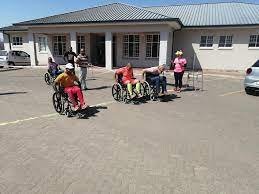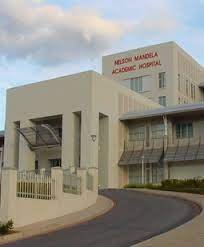It is now longer news that the WHO (World Health Organization) declared the deadly Covid-19 also known as the coronavirus a pandemic. The World Health Organization (WHO) was alerted on the 31st of December 2019 about several cases of pneumonia in Wuhan City in China. Not until 7th of January was it identified to be coronavirus. Since then it has affected about 125 countries of the world including South Africa.
Coronavirus is a group virus that causes respiratory tract infections that can be mild, such as some cases of the common cold (among other possible causes, predominantly rhinoviruses), and others that can be lethal, such as SARS, MERS, and COVID-19.

COVID 19 was first detected in Wuhan city, Hubei province, China. The Virus is named SARS-Cov-2 and the disease it caused is named ‘’Coronavirus disease 2019 (COVID-19)’’. The new virus that struck the world was temporarily named “2019-Ncov”.
COVID-19 spreads via droplets produced when an infected person coughs or sneezes and their droplets lands in the mouth or noses of nearby people which causes illnesses such as cold, fever and difficulty in breathing. People can also contract the virus by touching contaminated surfaces and then touching their eyes, nose or mouth.
On Thursday, March 5, the National Institute for Communicable Diseases confirmed that a suspected 38-year-old male who travelled to Italy with his wife. They were part of a group of 10 people and they arrived back in South Africa on March 1, 2020.
The patient upon arrival consulted a doctor after having symptoms including fever, headache, malaise, a sore throat and a cough. After carrying out tests, the result showed that he was infected with the COVID-19 but has since then been self-isolating and responding to treatment. Little did we know that it is going to spread like wildfire.
As of March 20th 2020, the total number of cases reported is 202 with 72 females and 130 males. The Minister of Health reassured citizens that the government will take all necessary steps to ensure the health safety of people.
Today, the number of confirmed cases of COVID-19 in South Africa has since then risen bring the total number to 927 cases with no deaths but the Gauteng and Western Cape province still has the highest amounts of confirmed cases. Also, the minister advised citizens to ensure that they take the necessary precautions and preventive measures too.
In a bid to reduce the fast spread of this deadly killer-COVID-19 and in consideration of the growing numbers of people contracting the virus, the President of the Republic of South Africa, President Cyril Ramaphosa has directed that the country be placed on a full national lockdown which will begin on Thursday 26th March and will continue for 21days. Citizens are hereby advised to stay at home during this period and anyone found breaking the rules could be punished with imprisonment for up to one month or pay a fine.
Here are the few ways to stay safe this period:
- Regularly wash your hands with soap and water and use alcohol-based hand sanitizer
- Maintain at least 1.5metres (5 feet) between you and anyone who is sneezing or coughing
- Clean and disinfect frequently touched objects and surfaces
- Ensure that you and people around you cover your mouth and nose with disposable tissue while sneezing or coughing and dispose of the tissue immediately.
- You can also sneeze or cough into your sleeves at the bent elbow or shoulder ensuring both mouth and nose are covered.
- Stay informed on the latest developments about COVID-19 through official channels on TV and Radio, the social media including the Gauteng department of Health.
- Comply with all the precautionary directives advised by the Regulatory bodies (National Department of Health South Africa) such as the travel advisory.
- Emergency number to reach to out to for any suspected case is 0800 029 999 or via a WhatSapp support 0600 123 456



